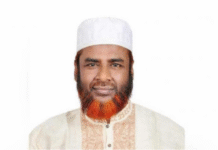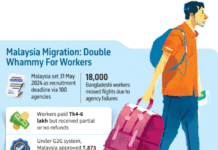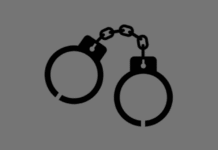The international community should take a strong stand for the protection of human rights in Bangladesh, seven human rights groups said on International Human Rights Day. As Bangladeshis grapple with the impact of Covid-19, the ruling Awami League has used the pandemic to tighten the screws on critics and the free press, further entrenching authoritarian rule.
The government has consistently targeted dissidents with the Digital Security Act-2018, the Special Powers Act-1974, and other draconian laws. Security forces commit enforced disappearances, extrajudicial killings, and torture with impunity.
The groups expressed support for a Bipartisan letter from the United States calling for sanctions on senior commanders of Bangladesh’s Rapid Action Battalion (RAB), a counter-terror paramilitary force notorious for committing grave abuses. The imposition of sanctions would be a landmark step towards ending the culture of impunity for abuses by security forces in Bangladesh and would serve to deter future human rights violations. Other countries with similar sanctions regimes, including the UK, Canada, and the EU, should also explore pursuing such sanctions, the organizations said.
The Covid-19 pandemic shed light on vast inequalities and corruption in access to healthcare in Bangladesh. Healthcare workers reported being under pressure to reserve lifesaving care for the political elite or those with powerful connections. Meanwhile, criticism of these double-standards or the government’s handling of the crisis were met with arbitrary arrests and detention.
Prominent journalists such as Abul Asad, Ruhul Amin Gazi, and Shafiqul Islam Kajol, cartoonist Ahmed Kishore, and writer Mushtaq Ahmed remain in detention, despite calls from the UN to reduce prison populations to prevent the spread of Covid-19 particularly by releasing low-risk offenders and those in pre-trial detention.
Completely disregarding guidance from the UN, civil society, and donors, the government hastily relocated Rohingya refugees to the remote island of Bhasan Char without a long-promised, expert technical and protection assessment of conditions on the island. Rights organizations have reported that at least some of these relocations appear to be forced and without informed consent, in violation of international law.
The Bangladesh government has repeatedly demonstrated that it is not committed to protecting human rights. The international community should take a clear stand to ensure accountability of institutions and security forces, an independent judiciary, and free press in Bangladesh, the organizations said.
This joint statement is endorsed by:
- Asian Federation Against Involuntary Disappearances (AFAD)
- Asian Human Rights Commission (AHRC)
- Asian Network for Free Elections (ANFREL)
- International Federation for Human Rights (FIDH)
- Human Rights Watch (HRW)
- Robert F. Kennedy Human Rights
- World Organisation Against Torture (OMCT)
For more Human Rights Watch reporting on Bangladesh, please visit:
https://www.hrw.org/asia/bangladesh
For more information, please contact:
For Human Rights Watch, in San Francisco, Brad Adams (English): +1-347-463-3531 (mobile); or adamsb@hrw.org. Twitter: @BradMAdams
For Human Rights Watch, in London, Meenakshi Ganguly (English, Bengali, Hindi): +91-9820-036032 (mobile); or gangulm@hrw.org. Twitter: @mg241
For Asian Human Rights Commission, in Hong Kong, Mohammad Ashrafuzzaman (Bangla & English): +852 6073 2807 (mobile); or zaman@ahrc.asia. Twitter: @humanrightsasia
The Asian Federation Against Involuntary Disappearances (AFAD) is a federation of human rights organisations working directly on the issue of involuntary disappearances in Asia. Envisioning a world without desaparecidos, AFAD was founded on June 4, 1998 in Manila, Philippines. AFAD was the recipient of the 2016 Asia Democracy and Human Rights Award conferred by the Taiwan Foundation for Democracy. www.afad-online.org
The Asian Human Rights Commission (AHRC) was founded in 1984 by a prominent group of jurists and human rights activists in Asia. The AHRC is an independent, non-governmental body, which seeks to promote greater awareness and realisation of human rights in the Asian region, and to mobilise Asian and international public opinion to obtain relief and redress for the victims of human rights violations. http://www.humanrights.asia/
The Asian Network for Free Elections (ANFREL) was formed in November 1997 to promote and support democratization in Asia at the national and regional levels. It has since established itself as the foremost NGO working for democratic elections in the region. ANFREL has 27 member organizations hailing from 17 different countries in Asia. https://anfrel.org/
The International Federation for Human Rights (FIDH) is a non-governmental federation of human rights organizations around the world. Founded in 1922, FIDH is the oldest international human rights organization in the world, and today brings together 192- member organizations from 117 countries. Its core mandate is to promote respect for all the rights set out in the UDHR. www.fidh.org
Human Rights Watch (HRW) is an international non-governmental organization, headquartered in New York City, that conducts research and advocacy on human rights. Human Rights Watch investigates and reports on abuses throughout the world. https://www.hrw.org/
Robert F. Kennedy Human Rights is a non-governmental organization based in Washington, D.C. Founded in 1968 as a living memorial, it strives to achieve Robert F. Kennedy’s vision of a more just and peaceful world. Robert F. Kennedy Human Rights’ core programs focus on the power of the individual and providing sustained advocacy, litigation, and capacity-building support to grassroots leaders to advance social justice movements around the globe. www.rfkhumanrights.org
The World Organisation Against Torture (OMCT) is an international non-governmental organisation based in Geneva, with offices in Brussels and Tunis. The OMCT works with around 200 member organisations, which constitute its SOS-Torture Network, to end torture and ill-treatment, fight impunity and protect human rights defenders worldwide. Helping local voices be heard, we support our vital partners in the field and provide direct assistance to victims. www.omct.org









